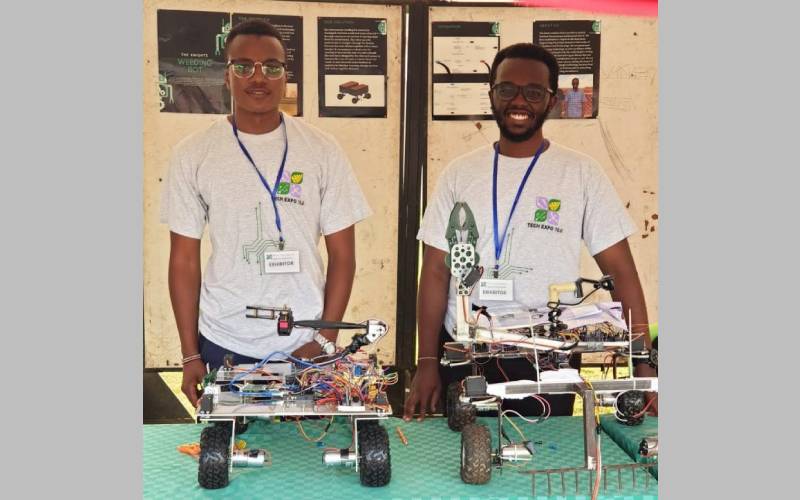×
The Standard e-Paper
Kenya’s Boldest Voice

When two classmates in university teamed up to work on an engineering project, they never imagined their names would make it to the list of “shujaas” that the president would mention in his speech.
Michael Malombo Mwaisakenyi and Ken Kioria Gicira, 25, of Jomo Kenyatta University of Agriculture and Technology (JKUAT) say they never, in their wildest dreams, imagined they would be subject of discussion in a national event.